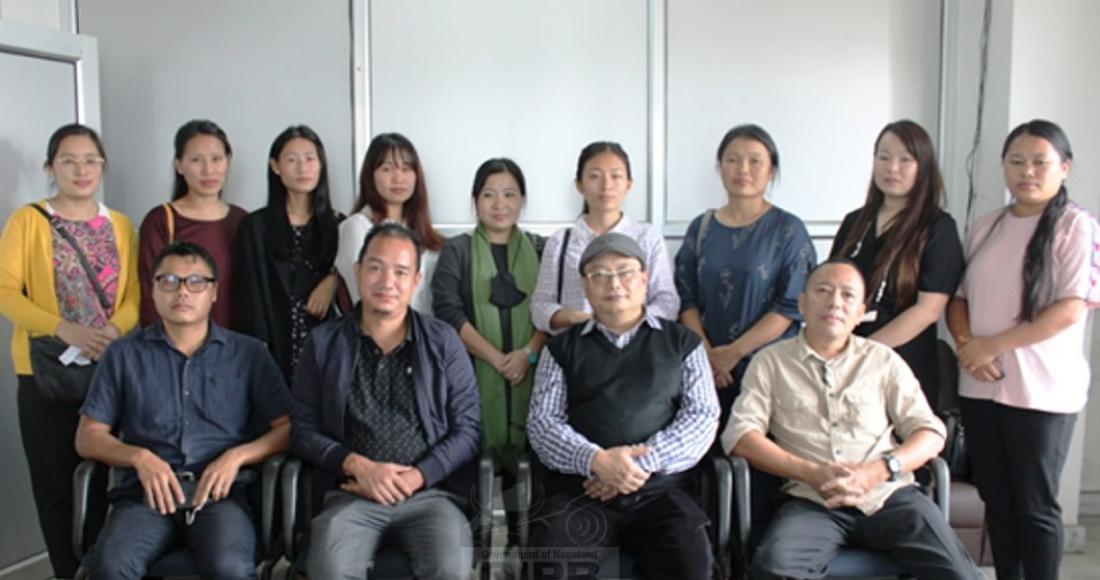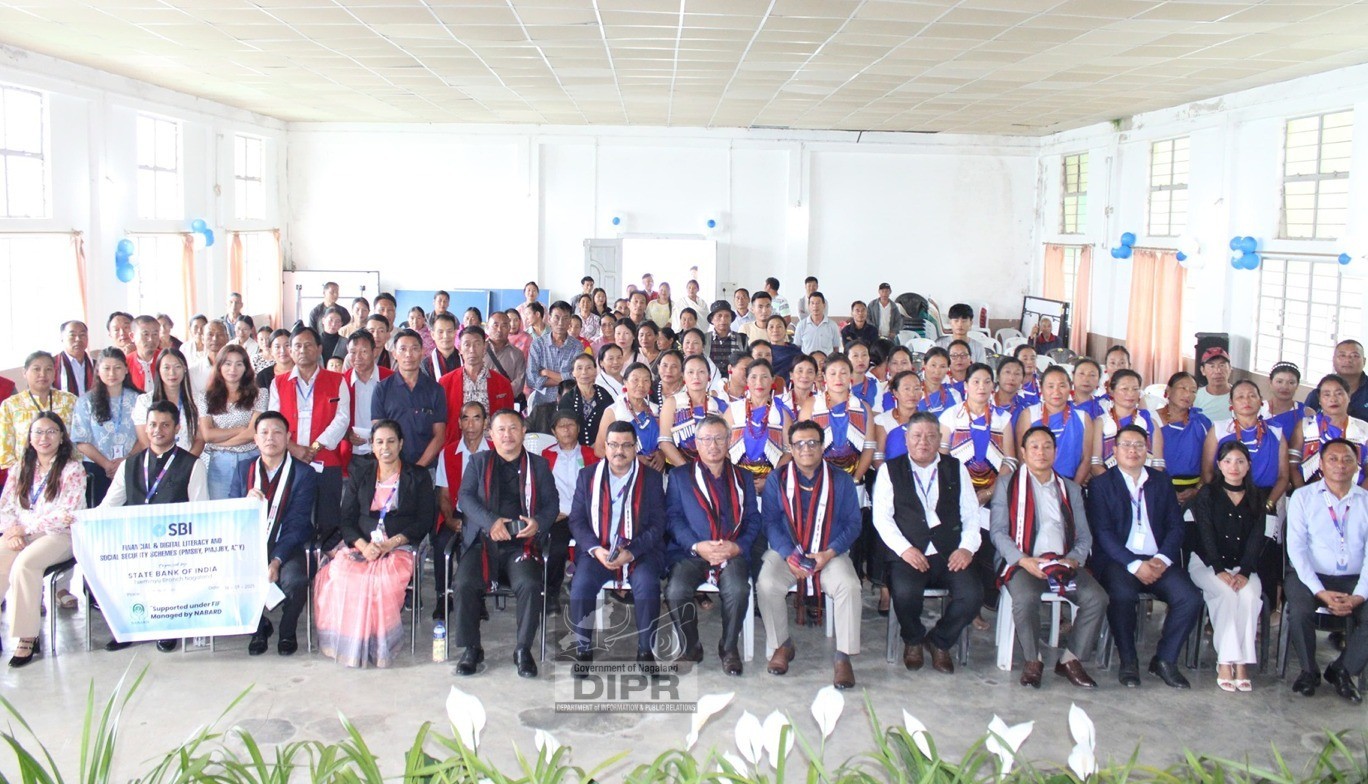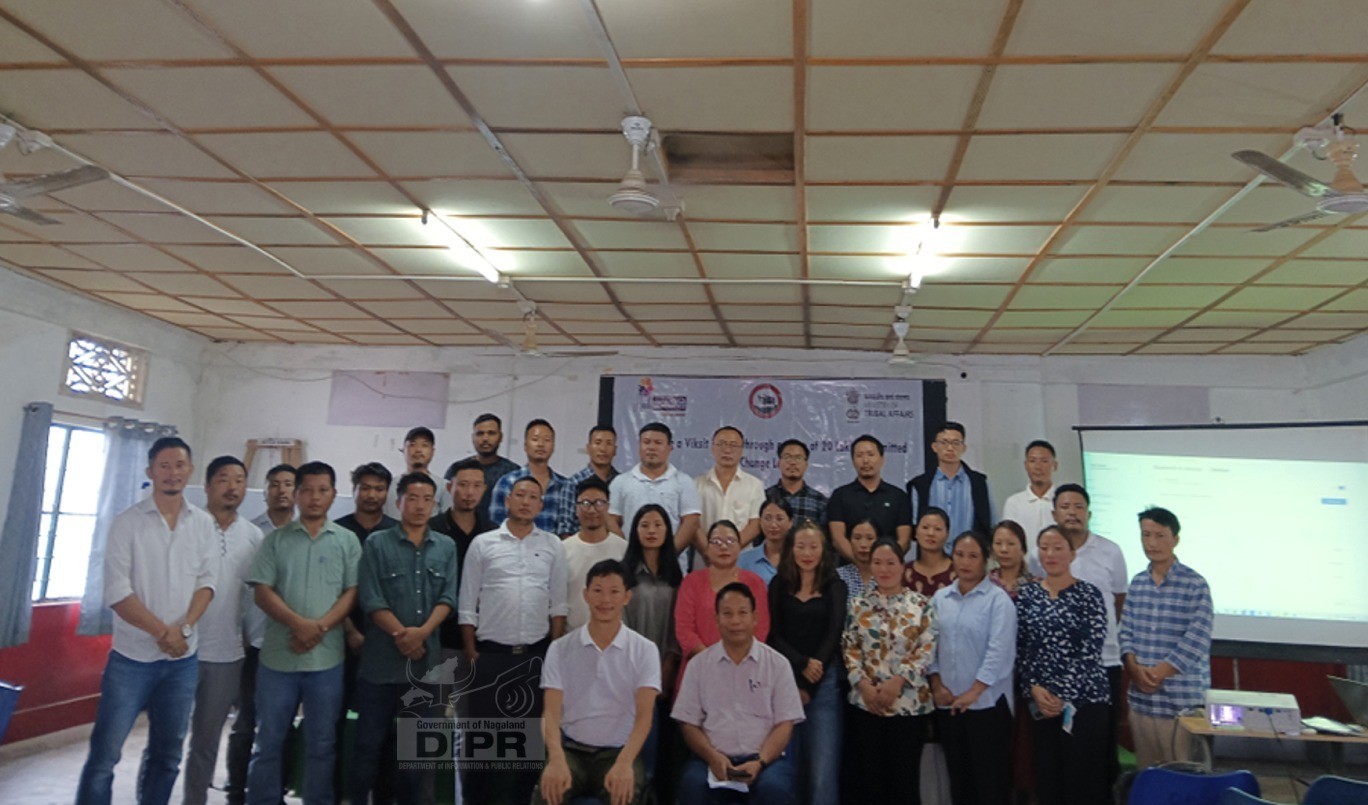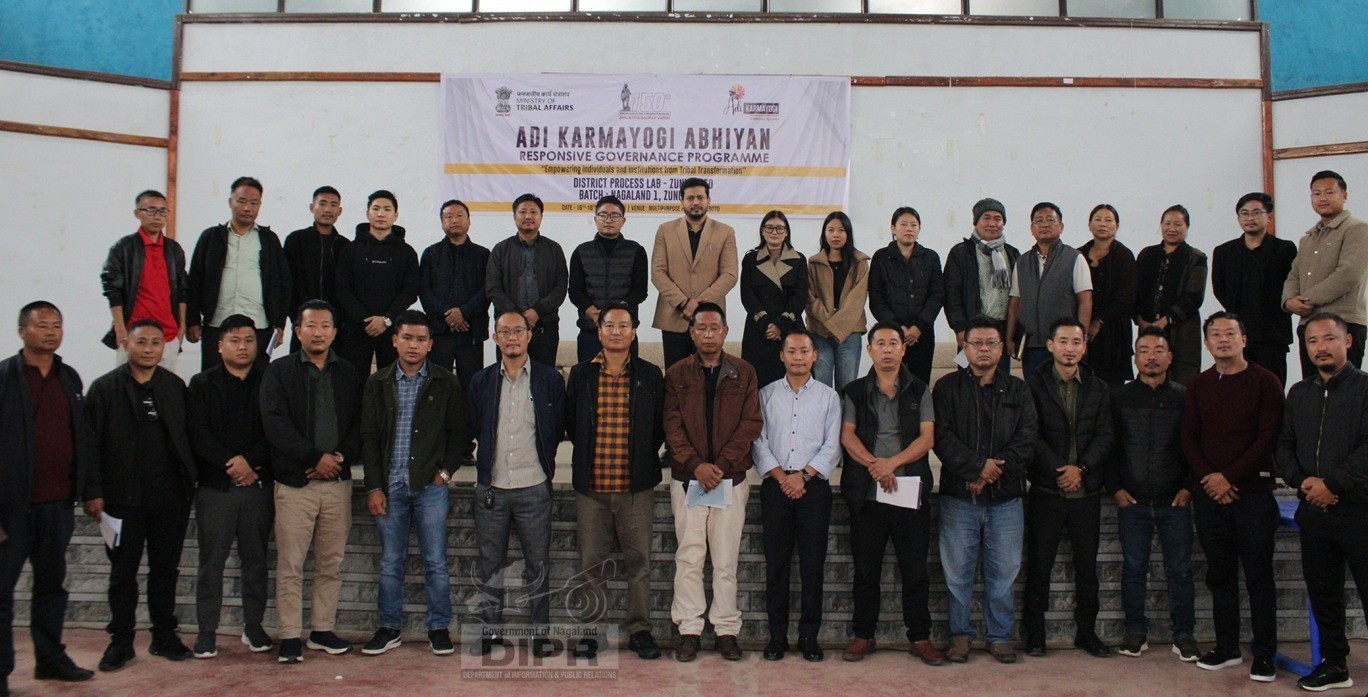Directorate of Women Resource Development, Government Nagaland today, 4th September 2021, signed a Memorandum of Understanding with 9 (Nine) Skilled Unemployed Women for taking up collaborative programmes and production activities under Apparels & Accessories Programme of Transformative Livelihood Intervention Project of the Department for a period of 2 (two) years on a ‘Pay –Per- Production’ basis on 3rd September 2021.
During the Signing of the MoU at the Directorate, Director, Women Resource Development Vilone Sakhrie, mentioned that as part of Livelihood Intervention and Support programme of the Department, skilled unemployed women are being engaged for production works (tailoring, weaving and its related activities) initially for a period of 6 (six) months purely on ‘Pay-Per Production’ basis.
He stated that, engagement on Pay-Per-Production basis under this Programme started during 2019-20, where trainees from Multi Training Centres (MTCs) of the Department as well as other skilled unemployed women tailors and weavers were given the opportunity to enable sustainable livelihood as well as for enhancement of Myki apparels & accessories production output. Since then, every year, various skilled unemployed women individuals are being engaged in these activities.
He further pointed out that, provision was made for engagement of these skilled unemployed women for extending the period of their services through an MoU if their performance was found to be satisfactory and commendable after completing the initial period of six months. These women have been actively engaged in production of three-layered face masks with the advent of Covid-19 pandemic in the State and subsequent lockdowns where production continued from their respective homes. This enabled the Department to produce a sizable quantity of face-masks, aprons and other products, most of which were donated to frontline workers, health workers and other local bodies engaged in combating the pandemic.
The Apparels & Accessories Programme of TLI Project continues to churn out a variety of products which are donated wherever necessary or otherwise sold at very reasonable prices, so that even the poorer section of the society can avail quality products. Moreover, it has also become a regular source of income for these women engaged in the activities.
(DIPR)





